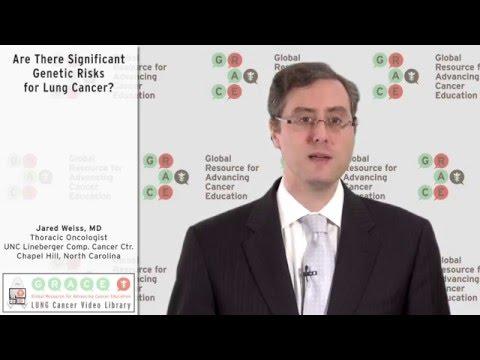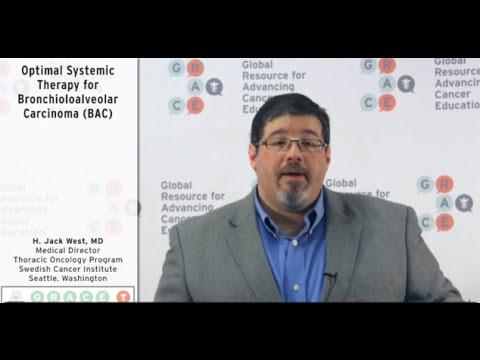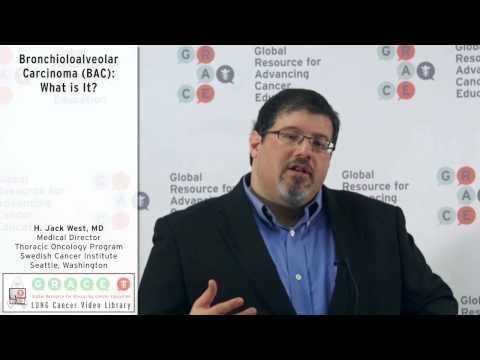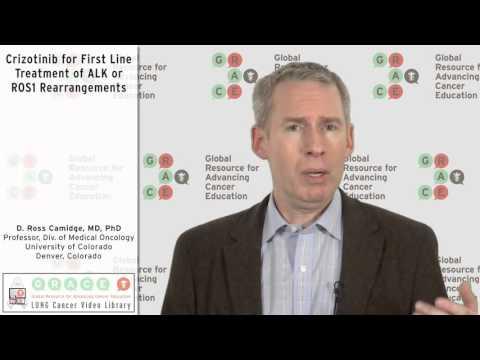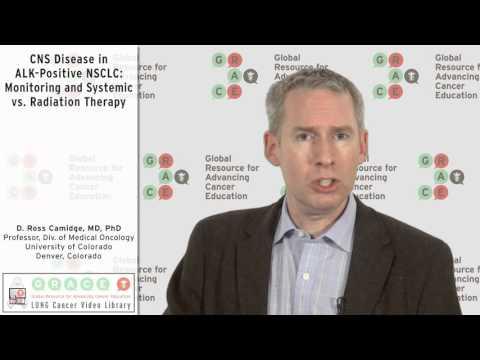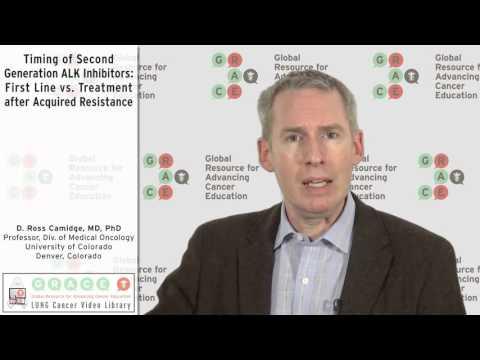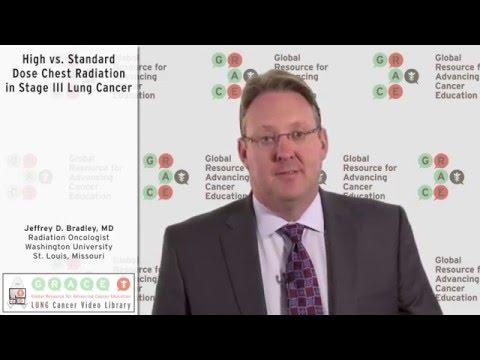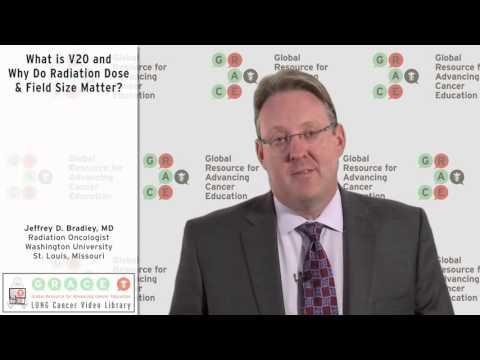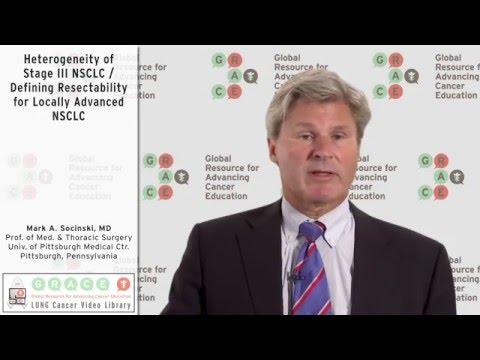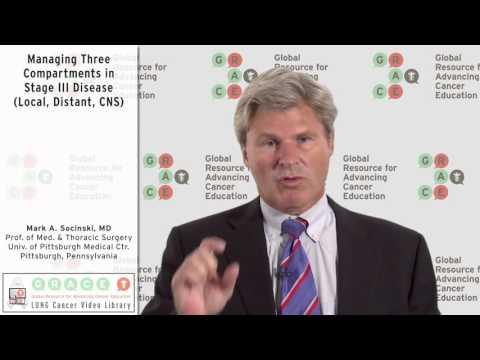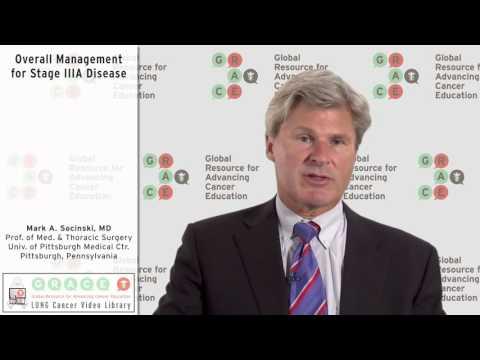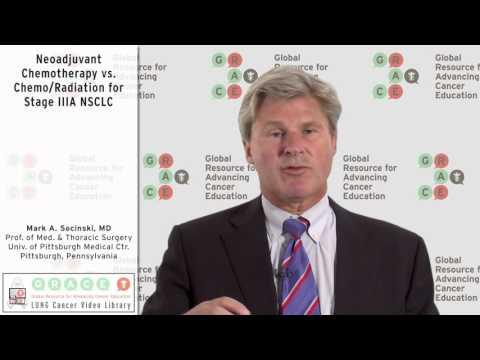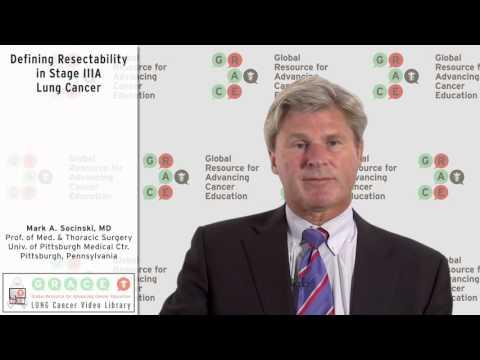Dr. Jared Weiss, UNC Lineberger Comprehensive Cancer Center, discusses the genetic risk (or lack thereof) for lung cancer.
Video Library
Search the Video Library
Video Language
Filter by Cancer Type:
Displaying Results 1 - 15 of 106
Bronchioloalveolar carcinoma (BAC) is an unusual subtype of lung cancer; medical oncologist Dr. Jack West reviews the evidence on the best systemic therapy to treat advanced, multifocal BAC.
Bronchioloalveolar carcinoma (BAC), also known as adenocarcinoma in situ, is an unusual subtype of lung cancer with its own appearance under a microscope and on imaging. Dr. Jack West introduces some of the basics of the unique features of BAC. Download PDF Transcript Transcript One of the unusual
Unfortunately, there is as much misinformation as good information about the unusual subtype of lung cancer known as bronchioloalveolar carcinoma (BAC) or adenocarcinoma in situ. Dr. Jack West reviews the top 5 myths. Download PDF Transcript Transcript One of the unusual subtypes of lung cancer is
Dr. David Harpole, Duke University Medical Center, describes how he assists patients with the surgical decision-making process.
Dr. Ross Camidge, University of Colorado, explains the preference for crizotinib rather than platinum doublet chemotherapy as first line treatment for patients with ALK or ROS1 rearrangements.
Dr. Ross Camidge, University of Colorado, discusses management of CNS progression for ALK-positive NSCLC including monitoring frequency and preferences between systemic and radiation therapy.
Dr. Ross Camidge, University of Colorado, addresses the question of whether to use a second generation ALK inhibitor as first line therapy or only after acquired resistance to crizotinib.
Dr. Jeffrey Bradley, Radiation Oncologist at Washington University in St. Louis, provides trial evidence showing that patients may not benefit from high dose chest radiation therapy vs. standard dose therapy.
Dr. Jeffrey Bradley, Radiation Oncologist at Washington University in St. Louis, defines the V20 standard for lung radiation and outlines the advantages of limiting dose and field size in lung radiation therapy.
Dr. Mark Socinski, University of Pittsburgh Medical Center, describes the different types of stage III (locally advanced) NSCLC, and states which of these types tend to be resectable.
Dr. Mark Socinski, University of Pittsburgh Medical Center, defines the three compartments in stage III (locally advanced) NSCLC, each of which must be treated.
Dr. Mark Socinski, University of Pittsburgh Medical Center, describes the primary treatment options for stage IIIA NSCLC, including chemoradiation and surgery, and discusses trial evidence for each approach.
Dr. Mark Socinski, University of Pittsburgh Medical Center, compares the use of chemotherapy to chemo/radiation in the preoperative setting in stage IIIA lung cancer.
Dr. Mark Socinski, University of Pittsburgh Medical Center, discusses the factors to consider in defining resectability in stage IIIa lung cancer.

